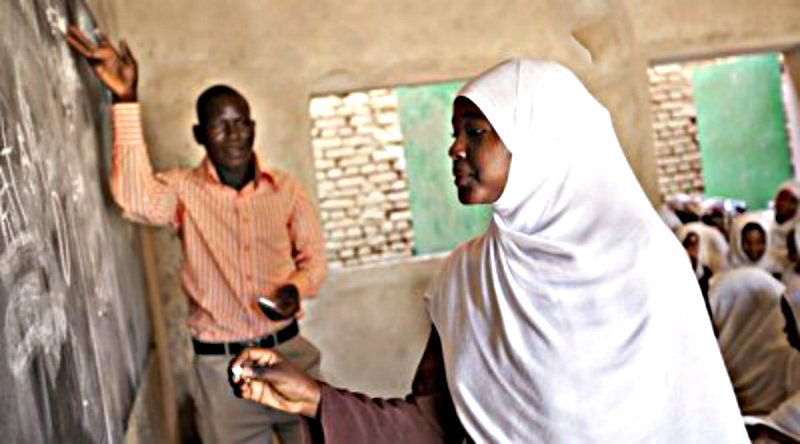Chad is facing a refugee crisis that has left the Lake Chad region's education infrastructure in shambles. The country assessed the situation, came up with a plan and has just been awarded the funding to make it work.
The current education system in the Lake Chad region is in shambles in large part because of the need to care for 8,500 refugee and displaced children living in the area.
Here’s a quick overview of the situation:
- ● 62% of children are out of school
- ● Primary school size is 75 students PER CLASSROOM
- ● Adult illiteracy rate is 95.8%
This obviously cannot continue. To fix the situation Chad outlined the Basic Education Emergency Project. They just needed the money to make the project work.
The reached out to the Global Partnership for Education, and with UNICEF as the implementing partner, they were awarded the needed funds--in less than a month! (I did say this was an emergency).
On February 9th, GPE announced that it would provide $6.95 million USD in emergency support for refugees and returnees in Chad.

The guidelines state that the accelerated funding will be used to ensure that EVERY child in the Lake Chad Region has access to a quality education.
That means that 8,500 refugee and displaced children will now receive:
- ● 86 new, permanent classrooms and 40 temporary learning structures
- ● More than 60,000 textbooks
- ● Training for teachers
- ● 25 wells and 80 latrines
- ● Micronutrients and parasite treatment
Wait, deworming is part of a plan to improve educational access and quality?
You bet it is!
Deworming school aged children has been linked to better school attendance, productivity and overall better health for a child. Also, have you ever tried to go to school when you were hungry, tired and sick? It’s impossible to concentrate!
Chad is a turning point - for more than just the current crisis
Educational funding didn’t always work like this. The focus used to be solely on educational access and it didn’t yield the best results. Chad was listed as one of the countries that did not make significant improvement in achieving the Millennium Development Goal of universal access to education. To provide clarity on why, think of a classroom filled with students and new desks, but is staffed by unpaid teachers that don’t teach, has a library with no books, and children too sick to attend the newly built school.
Seeing this situation occur over and over again, experts realised the focus needed to be more than just access to school. "Schooling is not always learning," said Eric Postel, Associate Administrator at USAID at a recent Global Citizen event.
Experts concluded that a universal funding model for education is problematic. Each country’s plan to improve their education system needs to be tailored to fit a unique set of needs. This can vary from teacher training to student health programs.
These unique, country-specific, variations will help guarantee that every child has access to a quality education.
For now, the Global Partnership for Education will continue to help Chad’s most vulnerable populations, and their work will continue to improve the 27 other partner countries that are fragile or conflict-affected. After all, GPE is founded on the belief that all children, everywhere, deserve the opportunity to learn.